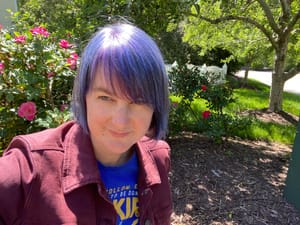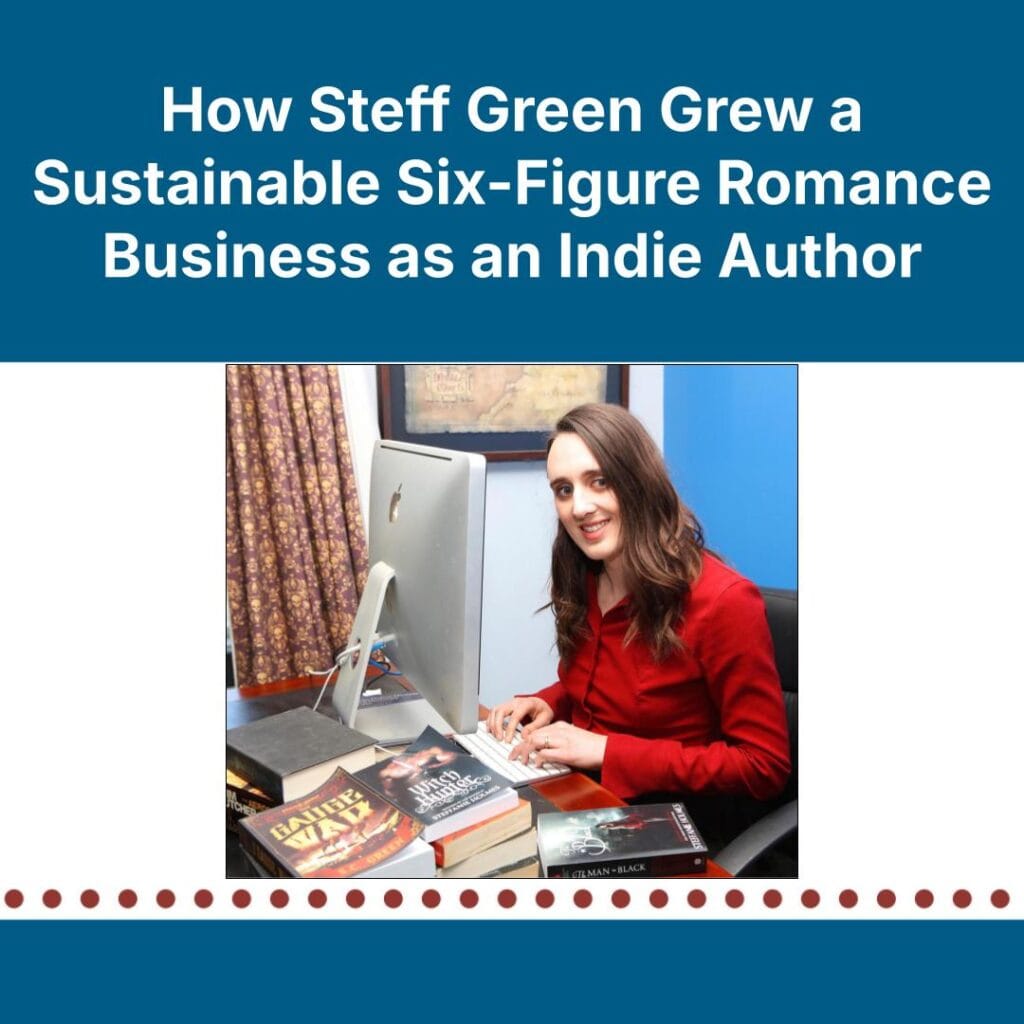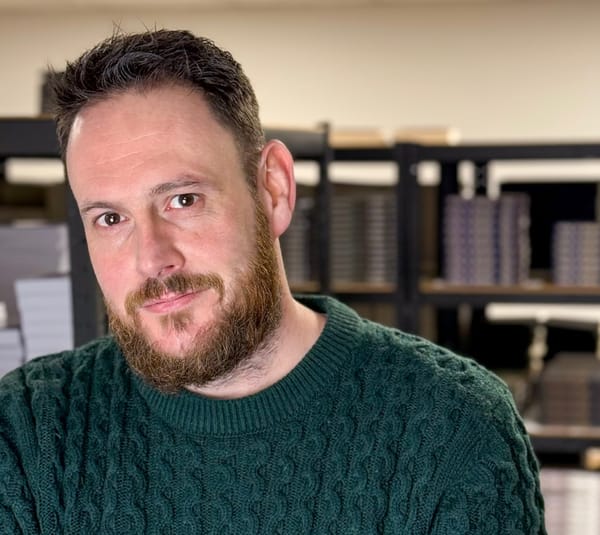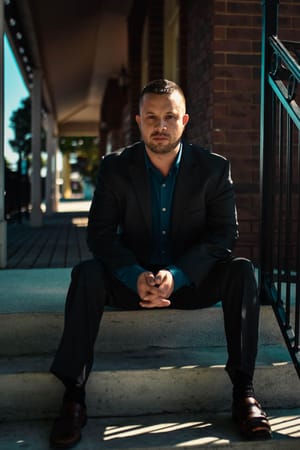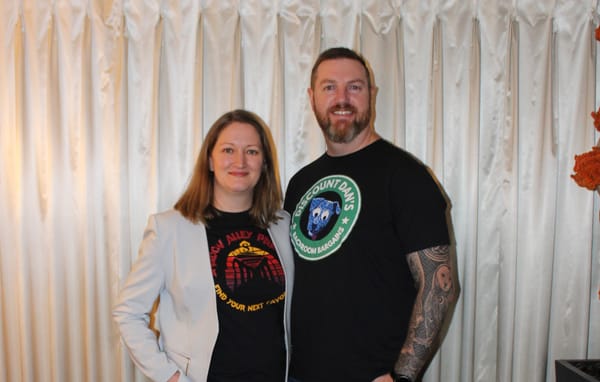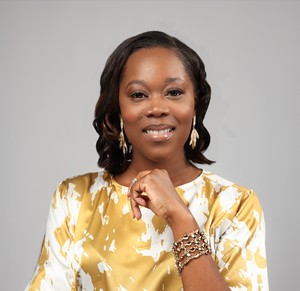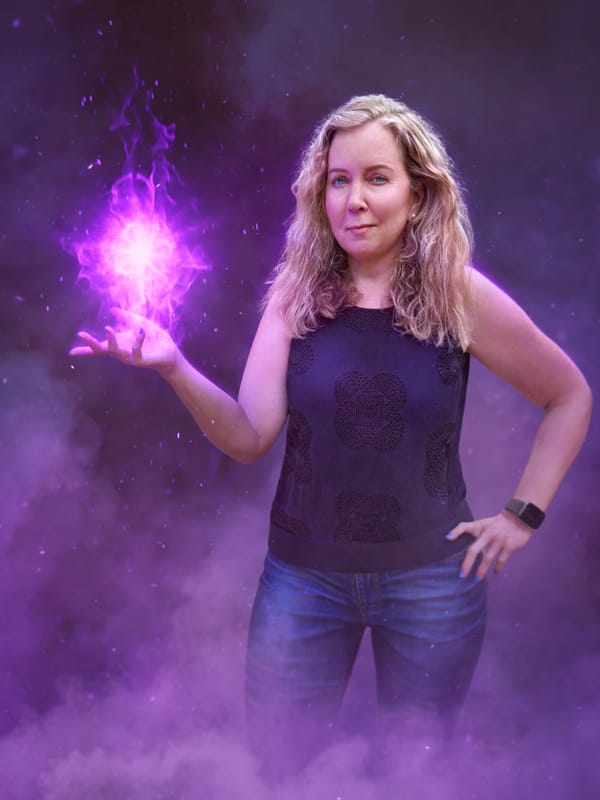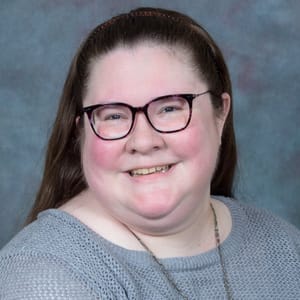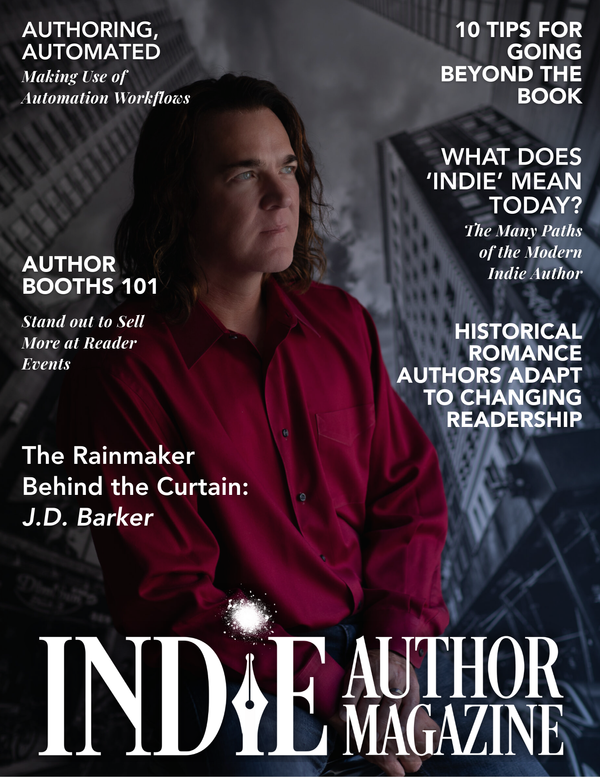Gothic Gardening: Steff Green on Growing a Sustainable Author Business
USA Today best-selling author Steff Green writes kooky, spooky Romance novels under her pen name Steffanie Holmes. The New Zealand-based author has been legally blind since birth, but, as she writes on her website, she’s built an audience over the years of “thousands of readers across the world who never tell me I can’t write because of my eyes.” In fact, her ardent fan base helped her reach a multi-six-figure income. Her coaching business, Rage Against the Manuscript, has aided other independent authors in building successful writing careers, and the resources she develops continue to provide guidance for struggling authors.
Green has always been a writer, but that wasn’t originally her intended career. “I wanted to be an archaeologist or a museum curator,” she says. She studied history at the University of Auckland, where she worked in a conservation lab, participated in digs, and volunteered with museums. But when she tried to find a job, she faced “an overwhelming amount of discrimination” because of her eyesight. “I wasn’t really given the chance, and it got very depressing and very upsetting,” she says.
Coming home after a particularly bad experience, she spoke with her then boyfriend—now husband—about what to do. He suggested she could keep trying, but there might be a different path for her. “You’ve done all these cool things, so what would be another job that you would absolutely love to have? What would be a thing that no one could tell you that you couldn’t do?” he asked her.
Green had previously published through her university’s magazine, and when she considered what she would enjoy doing professionally, “it just immediately came to me. I would be a writer,” she says, “not just as a dream, like, ‘I would love to have a book published,’ but as a career. I want this to be it. My profession is to be a writer of stories.”
Planting Seeds
As a fan of heavy metal and Gothic aesthetics, she initially completed a vampire novel she’d already started, then wrote dark Science Fiction novels like the ones she enjoyed reading. Green spent ten years pitching her work to traditional publishers while working freelance, eventually scoring a deal that fell through.
“Sometimes the things that you like to read are not necessarily the things that you’re meant to write,” she says. Switching to Romance in 2013, “basically on a dare,” Green says, she independently published a Dark Paranormal Romance series. She wrote the first book in three weeks and sold around a thousand copies in a week. “This book was the easiest thing I’d ever written. It just flew off my fingers. It was so much fun, and not only that, but the market seemed to resonate. The readers seemed to really resonate with my voice when I was doing this style of Romance.”
According to Green, success came when she realized, “This is the kind of combination of things I love to write about, and also things that readers want from me.” For two years, she wrote Dark Paranormal and Bully Romance novels as she explored her identity as a writer.
Although she enjoyed writing the darker stories, Green eventually realized that her voice leaned more toward the whimsical. In 2015, she changed direction again, independently publishing “really light, fun, quirky, kooky, spooky Paranormal Romance,” and, she says, “that has basically been my bread and butter ever since.” The new books were so popular that she was able to make writing a full-time profession in 2018, hit six figures in 2019, and had her first million-dollar year in 2024.
Although her author career was growing quickly, it wasn’t always a steady climb. There were still a few rough patches along the way. Around 2019, she published one of her most popular Dark Romance series and immediately followed it with another Dark Romance series that she describes as “the biggest flop of my whole career.” She blames the new series’s failure on her decision to create a new world with all-new characters rather than using spinoff characters from the previous series or creating a second generation. The new series ended up being “too paranormal for Contemporary Romance readers and not paranormal enough for Paranormal readers,” she says. In a panic, she looked for other sources of income and decided to develop an entirely new branch of her business: coaching.
Encouraging Growth
As her career had blossomed, Green had started giving workshops at the annual Romance Writers of New Zealand conference, and “just realized how much I loved talking about writing and kind of articulating the things that I was doing in a way which was inspiring to others,” she says. Since she’d already worked to ensure her talks provided actionable ideas, creating courses seemed like a reasonable next step. From there, she developed Rage Against the Manuscript, a website that includes a podcast, courses, books, events, and other resources for aspiring authors.
In 2020, she also started coaching writers one-on-one. “A lot of people really struggled to take the general concepts of a course and apply them to their specific situation,” she says. From 2020 to 2023, she worked coaching around her writing schedule. She says many of her clients ultimately faced one of three familiar problems:
- Crowdsourcing their business decisions
- Dealing with burnout
- Trying to level up
According to Green, many authors start by going to author groups and asking things like whether to go wide or stay in KU. “You post that on a Facebook group, and you’ll get fifty answers, and they’re all going to be different,” she says. “The answer is in the question. They already know what they want to do. They’re afraid that what they want to do might be wrong. And the truth is, in the indie world, there are very few decisions that are right and wrong. There are just different strategies, and different strategies work for different people.” As a coach, when a client asks this question, Green says, “It’s better to actually just start with, ‘Okay, well, we’re going wide.’ You set this up as an experiment. ‘I’m going to go wide for three months, and at the end of three months I’m going to assess what I have done. And then I’m going to make a decision after that, based on how things are going.’” She emphasizes that no decision has to be permanent.
This same thought process applies to the problem of burnout. Often, her clients who feel burned out have been trying to do everything at once and have discovered that they can’t continue that way. Green tells them they don’t have to.
They start by defining their goals. “For most people, it’s, ‘I want to make enough money from my books to be able to do that full time,’” she says. So she tells them to list everything they’ve done that gets them closer to that goal and rank them by effectiveness. “And then we cross out everything except basically the top three things,” she says. Usually, those are:
- Writing the book
- Sending a newsletter
- One form of social media
Green tells clients that avoiding burnout is about “being strategic about the things that you choose to do and don’t choose to do.”
For authors who have built a sustainable business but want to level up, the advice may not be what they want to hear. Instead of experimenting like the clients facing the previous challenges, Green says, “Often the answer here is: Just keep going. Keep writing books, you know. Keep serving your audience.”
Enjoying the Harvest
Following her own advice, Green quit coaching in 2023 to focus on her writing, but even as she winds down her courses, she continues to participate in the author community. “I give a lot of advice in Facebook groups,” she says. “Or I’ll go and talk at conferences because that way I get the fun of figuring out how to impart some information in a way that’s exciting to people. I get to help more people than just a one-on-one situation.”
She says groups like that are a good way for authors to figure out whether someone would be a good coach for them. “I would look at the advice that they give to other people, and I would see if that advice aligns with the way that I would like to approach my business,” she says.
At the same time, authors looking to coach could practice and build a reputation by making themselves useful in the same groups. But first, she says, it’s important to be sure that coaching is something you want to do. “It is so rewarding. It is so much fun. I mean, writers are just the coolest people. It’s awesome, but it is going to take away from your time doing your writing,” she says.
Because of her now extensive backlist, Green no longer panics if a new series doesn’t do well. She has learned “not to discount a series just because it doesn’t do so great out the gate,” she says. Everything connects back to the world she’s been building and becomes new content for fans of the older books. She doesn’t have to depend on the income spike of rapid releases and can instead spend time nurturing her backlist and producing special editions to help make up for lower-than-expected sales on new releases.
Green describes her writing style as gardening, something closer to pantsing than plotting, but she builds around a skeleton draft rather than writing into the dark. “When I start a series, I have a kind of vague sort of picture of it in my head. I like to give myself a lot of space to change my mind,” she says. Most of her series start as something that will fit into three or four books, but she leaves room for them to grow if there is reader interest.
Planning for the Next Season
Green’s Nevermore Bookshop series has grown to ten books and two spinoff series. Her next releases will expand her audience again. Fangs for Nothing is the first in a new spinoff series of the Nevermore world that will be published in a three-book deal with a traditional publisher.
The deal came about unexpectedly at a time when she was evaluating her annual goals. “The first thing I wrote down was: Pursue traditional publishing,” she says. “But then literally the same week that I wrote that down, I had an email from Atria Books, which is an imprint of Simon & Schuster, the editor basically saying, ‘Look, I’ve been reading your Nevermore series, and I love your work. And I would love to talk about collaboration.’” Although she didn’t write the book with the intention of querying it, she “very specifically designed it to be slightly more mainstream than my books. So it’s still my voice, just trying to appeal to a slightly wider audience.”
Green is approaching her new hybrid-author status by following the advice she’s given her clients about testing new things. “We’re just going to see,” she says. Meanwhile, she’s continuing to work on indie projects and setting up a Kickstarter for a Halloween special edition of her first traditionally published novel. She’s come a long way and changed paths a few times, but Green’s author journey is far from over. Going into this next season, she continues to choose projects she loves, following the rules for life listed on her website: “If you’re not having a blast, what are you even doing? Life’s an adventure. It will all work out okay in the end, and if it doesn’t—you’re not at the end.”
About the Author
Jenn Lessmann is the author of Unmagical: a Witchy Mystery and three stories on Kindle Vella. A former barista, stage manager, and high school English teacher with advanced degrees from impressive colleges, she continues to drink excessive amounts of caffeine, stay up later than is absolutely necessary, and read three or four books at a time. Jenn is currently studying witchcraft and the craft of writing, and giggling internally whenever they intersect. She writes snarky paranormal fantasy for new adults whenever her dog will allow it.

